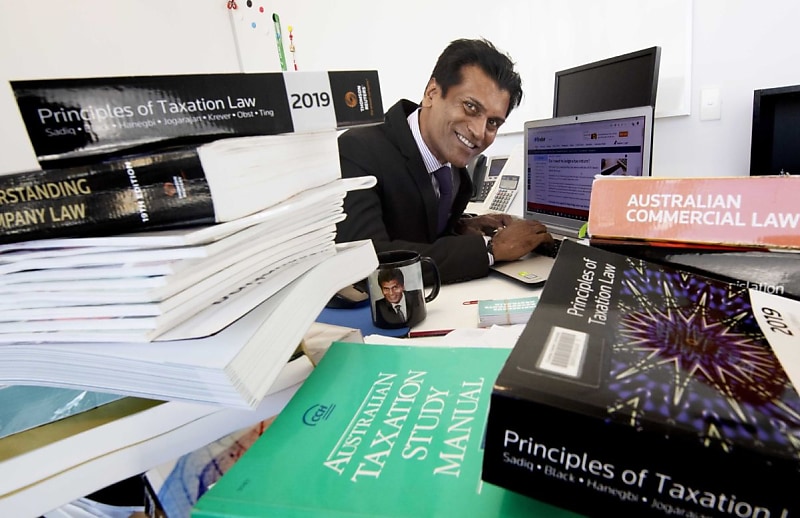ChatGPT forces rethink of accounting curriculums
TechnologyA top accounting professor says AI should be taught to students like Excel to prepare them for the workplace.

A top accounting professor has no plans to ban students from using ChatGPT and says it should be integrated into the accounting curriculum, taught alongside software such as Excel and Power BI.
Indra Abeysekera, chair of accounting and finance at Charles Darwin University, said an outright ban on ChatGPT in classrooms would be as ill-conceived as calls to ban Google or calculators.
“There was a time when we were not allowed to use calculators at all and you had to remember all the information,” he said.
“Now, with calculators, and Google, Wikipedia, Wikimedia – all these are helpful tools and people, students, academics, everyone is using it.”
For Abeysekera, who has been teaching accounting for 20 years and regularly features on Stanford's annual list of “World's Top 2% scientists” in accounting, ChatGPT was a “powerful learning tool” that made the learning process easier.
“Any tool that is helping students to learn and reduce their cognitive load, decreasing the difficulties of learning, that’s good. It’s a good thing!”
But while it could make students’ lives easier, it came up short when relied on to develop core competencies and answer questions that required creative or lateral thinking.
Abeysekera's recent research paper published in the Journal of Open Innovation tested ChatGPT’s performance on accounting assessments, finding it scored in the 80th percentile in CDU’s Introductory Financial Accounting course exam and the 50th percentile in the Advanced Financial course unit.
This meant ChatGPT struggled with more advanced questions that required discipline-specific assumptions or increased technical and task complexity.
For example, for an advanced question on non-controlling interests in business combinations, ChatGPT could “mathematically calculate the minority interest in consolidation” but considered only “the fair value of equity in the parent entity, which is based on the parent entity concept of consolidation” instead of the group entity’s equity.
ChatGPT also “showed a less than capable understanding of the effect of revaluation on business combinations,” the paper said. “Higher asset revaluations in consolidation accounting delay income tax expense as a delayed tax liability. ChatGPT could not realise this.”
Despite these limitations, he said “AI will keep improving”, meaning the curriculum should adapt by teaching students skills that ChatGPT lacked, such as applying accounting methods to produce “original” knowledge.
“ChatGPT has lifted the bar for existing or assumed knowledge. So we have to cultivate learners to produce new ideas, new processes, new ways to produce ideas and so forth, using existing knowledge as a platform for interpretation and creativity, lateral thinking.”
He also believed accounting courses should treat ChatGPT like other software that students could expect to use in the industry as future professionals.
Top accounting firms have embraced the technology since it launched at the end of 2022, integrating the technology with their internal systems.
Software companies have also launched AI-enhanced features, automating manual tasks like bank reconciliation and invoices, and providing deeper data insights.
As a result, Abeysekera said students should get used to ChatGPT “because they will use it when they go into the industry”.
“Barring it is, in fact, reducing the skill base of learners,” he said.
His personal view was that it should be integrated into the curriculum. “We teach students a suite of software in our course like Power BI, Tableau, Excel VBA.”
“I tend to think that, looking into the future [ChatGPT] will be part of the skillset,” he said.
“Our whole purpose is to respond to the industry and to make graduates job-ready. To do that well we have to do what the profession and industry requires.”
But accounting students should not expect ChatGPT’s help in exams anytime soon.
Despite ChatGPT becoming increasingly integrated into universities, Abeysekera said it had no place in exams, which should test students’ competencies.
“There is a moral duty to ensure that the learners have acquired that skill set and in the knowledge by themselves,” he said.




